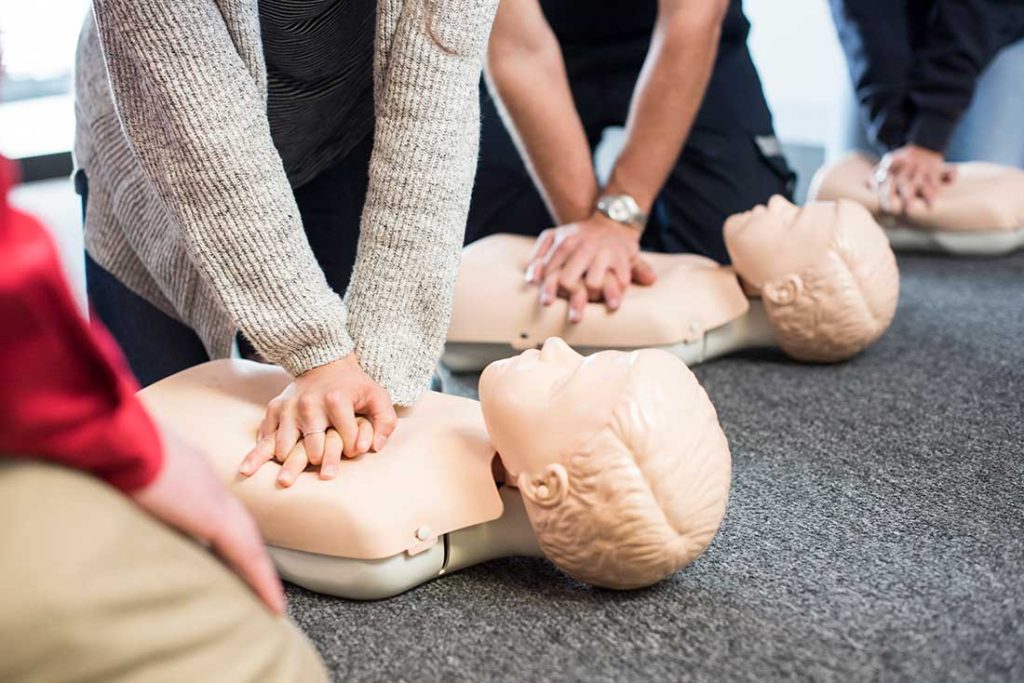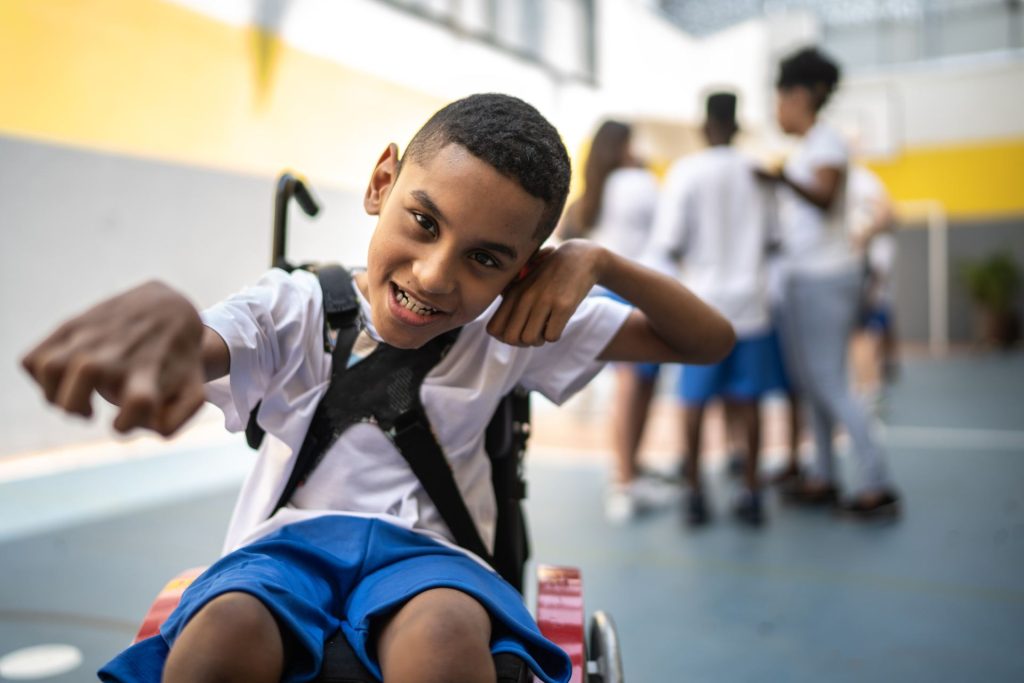Campus to Community at Mount Ida
Now recruiting pre-health students to participate in a summer program in which you learn about disability and health care, receive hands-on training and professional development, and provide 100 hours of paid respite care to a family raising a child with medical complexity or person with an intellectual or developmental disability.
Program director: Ashley Woodman, Ph.D.
Email: awoodman@umass.edu
Office hours: book an appointment
The Mount Ida Campus to Community program was invaluable to my success as a UMass student who wanted to enter the healthcare sector. The program provided me with relevant healthcare-related training opportunities and allowed me to meaningfully support my community. This program helped kickstart my professional goals.
Ryan, Psychology ’25
What is the purpose of this program?
The purpose of this program is to provide targeted coursework, training, and experience to better prepare the next generation of health care providers to provide high quality health care services to people with disabilities. People with disabilities were recently categorized as a population facing health disparities (NIH, 2023). Though many factors contribute to these health disparities, lack of disability-specific knowledge and experience among health care providers plays a significant role.
Who can participate?
Undergraduate students interested in careers in health care or disability services, broadly defined, are invited to apply. This program is intended for students from all majors (except nursing). No prior disability-related experience or coursework is expected. In accordance with UMass guidelines, students should have a GPA of at least 2.0 and 30 college credits to participate in the internship component of the program. Students must be able to pass a criminal background check (CORI) to participate in the program.
The Campus to Community at Mount Ida Program is dedicated to the training, professional development, and success of all our students, and we are committed to upholding the campus values of diversity, equity and inclusion on the UMass campus and beyond. First-generation students and students from groups historically underrepresented in medicine are highly encouraged to apply.
Where will this program take place?

The coursework, simulation training, and professional development will take place in person at the Mount Ida campus of UMass Amherst (Newton, MA) May 19th-23rd. The morning (9-12) will include the core coursework and the afternoon (1:30-4:30) will include the optional seminar on Disability and Health Care (PSYCH 391DC).
The field experience will take place in families’ homes within a 30-minute commute of the Mount Ida campus (or another Boston-area “home base”). Students will be reimbursed for mileage on their own vehicles or receive financial support for ZipCar, Uber, Lyft, or public transit.
Can I live on the Mount Ida campus?
Housing is available at the standard fees, though residency at Mount Ida is not a requirement for participation in the program. The application for housing is now open. The deadline to apply for housing is May 2, 2025, with a move in date of May 18, 2025. There is a minimum 6 week stay for summer housing.
For students who would like to stay only for the week of live classes (May 19-23), housing will be available at the rate of $50 per night for a single, or $34.50 for a double/shared room. Students may also rent a linen packet with sheets, towels, blankets, and pillows for $40.
What are the components of the program?
Community Service Learning (PSYCH 191M) – 2 credits
Students will receive professional development on topics related to providing home-based health care, respite care, and working with people with disabilities more generally.
Students can receive up to three nationally recognized credentials, including certifications in CPR and First Aid from the American Red Cross, Mental Health Youth First Aid from the National Council for Mental Well-Being, and the Respite Care Provider Training from the ARCH National Respite Network and Resource Center.

Additional training topics include:
- Providing care in home settings
- Experiences of families raising children with disabilities
- Providing trauma-informed care
- Practicing cultural humility
- Effective communication strategies
- Responding to challenging behavior
- Planning developmentally appropriate and accessible activities
- Collaborating with families and keeping records
Students will also participate in hands-on simulation training. Students will receive guidance, supervision, and feedback from nurses specializing in providing care to children with medical complexity in home settings. A general level of training will be provided to all students, but additional training is available for students who choose to work with children with medical complexity.

Seminar on Disability and Health Care (PSYCH 391DC) – 3 credits (optional)
In this seminar, students will explore a variety of topics related to disability and health care. Students will learn to challenge the pathology model of disability widespread among medical providers and institutions. Students will learn how to integrate elements of the social model of disability, the neurodiversity paradigm, disability justice and other disability affirming paradigms in their careers as health care providers. Students will learn about health care disparities experienced by disabled people and unpack its root causes.
Field experience (PSYCH 398DD) – 2 credits

The final component of the program is 100 hours of practical experience providing respite care to a family raising a child with a disability and/or medical complexity.
Matches will be based on both student and family preferences, interests/hobbies, allergies, schedules, and locations as well as student skill and comfort levels. Some students may be matched with more than one family, depending on family and student interest and availability. Students may be placed with Marathon Nursing, Advocates, or Campus to Community depending on their preferred role. Students can choose to register this internship for credit or not, but please note that there will be a fee for internship credits (PSYCH 398DD: Prac/Field Work in Developmental Disabilities and Human Services).
Placement Options

In this placement, students will be partnered with a skilled nurse supporting a child with medical complexity. Students will learn the “enhanced care services“ that are authorized by complex care assistants in Massachusetts. This is a volunteer position.

In this placement, students can work as skills trainers or respite care providers with children, adolescents, or adults with intellectual and developmental disabilities. Read more about the paid positions available.

In this placement, students can volunteer as respite care providers or work as personal care attendants with children, adolescents, or adults with intellectual and developmental disabilities.
How much will the program cost?
The core course for the program (PSYCH 191M) will be billed at a discount rate, but then you will receive a scholarship for the same amount credited to your account. In other words, there is no cost to participate in this program. Students who choose to enroll in the Disability and Health Care seminar (PSYCH 391DC) will pay standard UWW tuition rates. Students can choose to register their internship hours for credit (PSYCH 398DD). Internship credits are less expensive than standard academic credits.
Questions?
Contact the program director, Ashley Woodman, by email or sign up for office hours.
